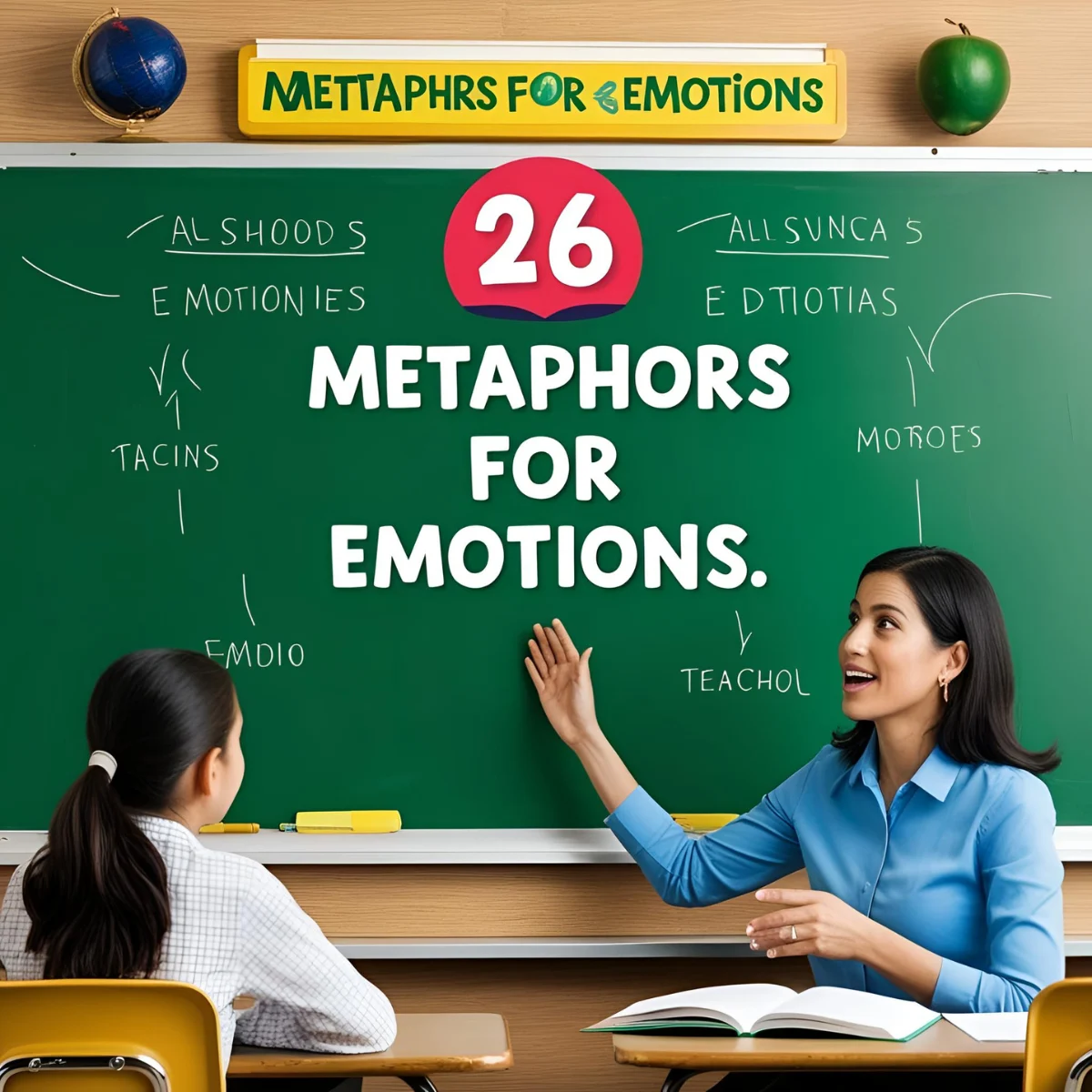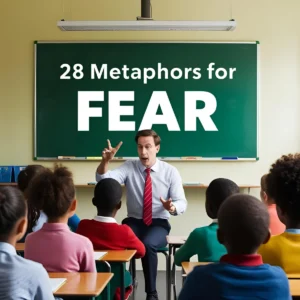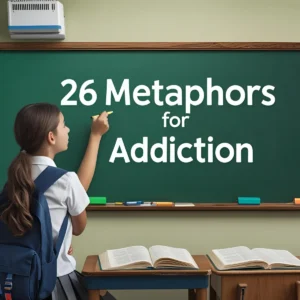Emotions are powerful, invisible forces that shape every moment of our lives—and metaphors give them color, texture, and depth. From “a storm in the heart” to “a weight on the chest,” metaphors for emotions help us describe feelings we can’t always explain directly.
They allow readers to connect with characters, memories, or moments on a deeper level. Whether it’s love, anger, fear, or joy, these metaphors bring abstract feelings to life. In this article, we’ll explore 26 rich and evocative metaphors that capture the complexity of human emotion.
1. Emotions Are a Roller Coaster
Meaning: Emotions can take us on an unpredictable ride of highs and lows.
Example: “Her emotions were a roller coaster, soaring with joy one moment and plunging into sadness the next.”
Tone: Dramatic, intense.
Other ways to say it: A whirlwind of feelings, a seesaw of moods.
2. Emotions Are a Storm
Meaning: They can be overwhelming, unpredictable, and powerful.
Example: “Anger erupted within him like a violent storm, sweeping away his calm.”
Tone: Chaotic, intense.
Other ways to say it: An emotional hurricane, a tidal wave of feelings.
3. Emotions Are a Fire
Meaning: They can burn passionately or smolder quietly.
Example: “Her love for him burned like an unquenchable fire.”
Tone: Passionate, consuming.
Other ways to say it: A flame of passion, a wildfire of rage.
4. Emotions Are a Flood
Meaning: They can overwhelm and engulf a person completely.
Example: “Grief came like a flood, drowning out all other thoughts.”
Tone: Intense, consuming.
Other ways to say it: A tidal wave of sadness, a tsunami of emotions.
5. Emotions Are a Volcano
Meaning: They can build up over time and erupt suddenly.
Example: “He kept his anger bottled up until it finally erupted like a volcano.”
Tone: Explosive, uncontrollable.
Other ways to say it: A ticking time bomb, a pressure cooker of feelings.
6. Emotions Are a River
Meaning: They flow naturally, sometimes calmly, sometimes turbulently.
Example: “Her emotions flowed like a river, sometimes steady, sometimes wild.”
Tone: Natural, fluid.
Other ways to say it: A stream of feelings, an ocean of thoughts.
7. Emotions Are a Compass
Meaning: They guide our decisions and actions.
Example: “His emotions acted as a compass, pointing him toward what truly mattered.”
Tone: Reflective, guiding.
Other ways to say it: An internal GPS, a guiding star of feelings.
8. Emotions Are a Battlefield
Meaning: Conflicting emotions can create inner turmoil.
Example: “Her heart was a battlefield, torn between love and duty.”
Tone: Intense, dramatic.
Other ways to say it: A war of feelings, an emotional warzone.
9. Emotions Are a Cage
Meaning: Strong emotions can trap and confine a person.
Example: “His fear locked him in a cage, preventing him from moving forward.”
Tone: Restrictive, suffocating.
Other ways to say it: A prison of emotions, shackles of the heart.
10. Emotions Are a Mirror
Meaning: They reflect our inner thoughts and experiences.
Example: “Her tears were a mirror of the pain she carried inside.”
Tone: Deep, introspective.
Other ways to say it: A window into the soul, a reflection of the heart.
11. Emotions Are a Balloon
Meaning: They can be light and uplifting or burst under pressure.
Example: “Happiness filled her heart like a balloon ready to float away.”
Tone: Buoyant, fragile.
Other ways to say it: A bubble of joy, an air-filled heart.
12. Emotions Are a Drug
Meaning: They can be addictive and influence behavior strongly.
Example: “The thrill of success was a drug he couldn’t resist chasing.”
Tone: Powerful, consuming.
Other ways to say it: An intoxicating feeling, an emotional high.
13. Emotions Are a Garden
Meaning: They must be nurtured and tended to grow healthily.
Example: “Love is like a garden; it flourishes when cared for but withers when neglected.”
Tone: Gentle, organic.
Other ways to say it: A field of emotions, a blossoming heart.
14. Emotions Are a Shadow
Meaning: They follow us everywhere, sometimes unnoticed.
Example: “No matter how much he tried to hide it, his sadness lingered like a shadow.”
Tone: Subtle, melancholic.
Other ways to say it: A ghost of feelings, an echo of the heart.
15. Emotions Are a Mountain
Meaning: Some emotions feel like an obstacle to overcome.
Example: “His anxiety was a mountain he had to climb every day.”
Tone: Challenging, monumental.
Other ways to say it: A peak of fear, a summit of feelings.
16. Emotions Are a Dance
Meaning: They move and change rhythmically.
Example: “Their love was a dance, sometimes slow and romantic, sometimes wild and passionate.”
Tone: Expressive, fluid.
Other ways to say it: A waltz of emotions, a ballet of feelings.
17. Emotions Are a Tsunami
Meaning: They can be overwhelming and uncontrollable.
Example: “A tsunami of guilt crashed over him, leaving him breathless.”
Tone: Overpowering, consuming.
Other ways to say it: A tidal wave of sorrow, a hurricane of fear.
18. Emotions Are a Cage Fight
Meaning: Strong emotions can battle for dominance.
Example: “Inside him, love and anger fought like warriors in a cage match.”
Tone: Intense, aggressive.
Other ways to say it: A wrestling match of feelings, a boxing ring of the heart.
19. Emotions Are a Firework Show
Meaning: They can be explosive and spectacular.
Example: “Her excitement burst like a firework, lighting up the entire room.”
Tone: Vibrant, energetic.
Other ways to say it: A spark of joy, an explosion of happiness.
20. Emotions Are a Chameleon
Meaning: They change depending on the situation.
Example: “His emotions were a chameleon, shifting colors based on his environment.”
Tone: Adaptive, ever-changing.
Other ways to say it: A shape-shifting heart, a mood-changing spirit.
21. Emotions Are a Clock
Meaning: They come in cycles, predictable yet unavoidable.
Example: “His emotions ticked like a clock, swinging between hope and despair.”
Tone: Rhythmic, inevitable.
Other ways to say it: A pendulum of moods, a ticking heart.
22. Emotions Are a Flock of Birds
Meaning: They can be chaotic, unpredictable, and move together.
Example: “His thoughts and emotions scattered like a startled flock of birds.”
Tone: Unpredictable, wild.
Other ways to say it: A swarm of feelings, a flutter of the heart.
23. Emotions Are an Earthquake
Meaning: They can shake the very foundation of a person.
Example: “The heartbreak hit her like an earthquake, leaving her world in ruins.”
Tone: Shattering, powerful.
Other ways to say it: A landslide of emotions, a tremor of the soul.
24. Emotions Are a Maze
Meaning: They can be difficult to navigate and understand.
Example: “His mind was a maze of emotions, twisting and turning with no clear exit.”
Tone: Confusing, complex.
Other ways to say it: A labyrinth of the heart, a puzzle of feelings.
25. Emotions Are a Candle
Meaning: They can burn brightly or flicker out over time.
Example: “Their love was a candle, glowing softly in the darkness.”
Tone: Gentle, poetic.
Other ways to say it: A flame of passion, a lantern of feelings.
Conclusion:
Metaphors for emotions allow us to translate what’s felt into what can be seen, touched, or heard. These 26 expressions—like “an anchor of grief” or “a fire of passion”—reveal how deeply emotions move, weigh, or uplift us.
They offer clarity when words fall short and make emotional writing more impactful and relatable. Use them to enrich your storytelling and create emotional resonance that lingers long after the last line.



